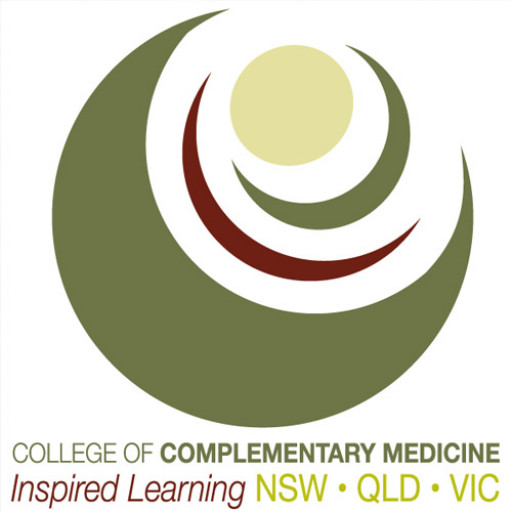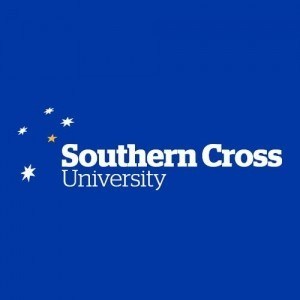Photos of university / #teessideuni
The MSc Movement Science and Multimodal Rehabilitation programme at Teesside University is designed to prepare students for a career in the dynamic field of physical therapy, sports science, and rehabilitation. This comprehensive course combines theoretical knowledge with practical skills, focusing on the scientific principles underlying human movement and the development of innovative rehabilitation strategies. Throughout the programme, students will explore various aspects of movement analysis, biomechanics, physiology, and injury management, equipping them with the expertise needed to design and implement effective rehabilitation plans for diverse populations, including athletes, individuals with chronic conditions, and those recovering from injury or surgery. The curriculum integrates cutting-edge research with hands-on experience, emphasizing multimodal approaches that incorporate physical therapy, exercise therapy, and technological interventions. Students will have access to state-of-the-art laboratories and clinical facilities, where they can develop their practical skills under supervision. The programme also fosters critical thinking, research, and evidence-based practice, preparing graduates to contribute to advancements in movement science and rehabilitation practices. Additionally, students can benefit from collaborative projects, internships, and workshops led by industry professionals, enhancing their employability and professional development. Graduates of this MSc will be well-equipped to pursue careers in clinical settings, sports organizations, research institutions, and healthcare companies, or to further their academic pursuits through doctoral studies. With a strong emphasis on innovation, multidisciplinary collaboration, and applied learning, the Movement Science and Multimodal Rehabilitation programme aims to produce competent, compassionate practitioners who can make a positive impact on individuals’ quality of life through effective movement and rehabilitation interventions.
The Master of Science in Movement Science and Multimodal Rehabilitation at Teesside University is a comprehensive programme designed to equip students with advanced knowledge and practical skills essential for careers in sports, health, and rehabilitation sectors. This course offers an in-depth exploration of human movement, focusing on biomechanics, motor control, and physical performance, alongside various rehabilitation techniques tailored to individual needs. Throughout the programme, students engage with cutting-edge research and evidence-based practices to understand the physiological, psychological, and environmental factors influencing movement and recovery.
The curriculum covers a wide range of topics, including musculoskeletal assessment, injury prevention, physical therapy interventions, and the application of multimodal approaches to rehabilitation. Students learn to develop personalized treatment plans and implement interventions that promote optimal functional outcomes for diverse populations, such as athletes, patients recovering from surgery, or individuals with chronic conditions. Practical components include supervised clinical placements, where students gain hands-on experience in real-world settings, working with patients and clients under the guidance of experienced practitioners.
In addition to clinical skills, the programme emphasizes the importance of research literacy and critical thinking, encouraging students to analyze current literature and contribute to the development of innovative rehabilitation strategies. Interdisciplinary teamwork and communication skills are also a core part of the programme, preparing graduates to collaborate effectively within multidisciplinary teams. Graduates from this course will be well-positioned for employment in sports medicine, physiotherapy, rehabilitation clinics, research institutes, or pursuing further academic study towards doctoral qualifications. Overall, the programme aims to produce highly skilled professionals capable of making a meaningful difference in the health and wellbeing of individuals through movement science and multimodal rehabilitation techniques.
Program requirements for the BSc (Hons) Movement Science and Multimodal Rehabilitation at Teesside University typically include a combination of academic qualifications, specific subject prerequisites, and other criteria. Applicants are generally expected to possess at least a minimum of 112 UCAS tariff points from a relevant Level 3 qualification such as A-Levels, BTEC, or equivalent educational credentials. Preferably, qualifications in Reducing movement impairments, Sports Science, Physiology, Biology, or related fields are advantageous.
Additionally, applicants must demonstrate a good understanding of the human body's structure and function, often evidenced through relevant science coursework or work experience. An essential requirement is proficiency in English language, with International Students needing to provide evidence via IELTS or equivalent tests, usually with a score of 6.0 or higher overall, and no component score below 5.5.
The application process involves submitting a detailed UCAS application form, including a personal statement that highlights interest and experience in movement science and rehabilitation, and may also require references. Applicants may be invited for an interview or assessment day, especially for those without traditional qualifications but with relevant industrial or voluntary experience.
Throughout the program, students are expected to meet academic standards, participate actively in practical sessions, and adhere to professional standards related to healthcare, physiotherapy, and rehabilitation practices. Prior experience in sports, fitness, health sciences, or related areas can strengthen an application.
Furthermore, applicants should be aware of the commitment required during the program, which includes attendance at lectures, laboratory work, physical assessments, clinical placements, and independent research. The programme's admission criteria are designed to select candidates with the appropriate academic foundation, motivation, and practical skills necessary for a career in movement science and multimodal rehabilitation.
Finance options for the Movement Science and Multimodal Rehabilitation program at Teesside University are designed to support students in managing the cost of their higher education. The university offers a range of funding opportunities, including government-backed student loans, scholarships, and bursaries. Tuition fees for international students are different from those for domestic students and vary annually; prospective students are advised to consult the university's official website for the most current fee structure.
For UK students, the Student Loan Company provides undergraduate and postgraduate loans that can cover tuition fees and living costs. These loans are repayable after graduation, typically once the graduate’s income exceeds a certain threshold. The repayment terms are structured to be manageable, with interest rates linked to the UK inflation rate, and repayment begins after the student’s income exceeds £27,295 per year (as of 2023). International students are required to secure private funding or scholarships to finance their studies.
Teesside University also offers a range of scholarships and bursaries to help reduce the financial burden for eligible students. These include merit-based scholarships, which are awarded based on academic achievement, and need-based bursaries for students from lower-income backgrounds. Additionally, some students may qualify for employer sponsorship or funding from healthcare organizations interested in supporting Rehabilitation professionals.
Part-time work options are available on and off campus, offering students the opportunity to earn income while studying. The university’s Careers Service can assist students in finding suitable part-time roles and internships relevant to their field of study. Furthermore, students may explore external funding opportunities, including regional grants, professional associations’ scholarships, and charity-funded bursaries aimed at health and rehabilitation sciences.
Financial support does not only cover tuition fees; students can also access funding for study materials, living expenses, and accommodation. The university’s financial advising services provide personalized guidance to help students navigate available options and plan their budgets effectively throughout their studies. Overall, the university's comprehensive approach ensures that financial support mechanisms are in place to facilitate access and success in the Movement Science and Multimodal Rehabilitation program.
The Movement Science and Multimodal Rehabilitation program at Teesside University is designed to provide students with a comprehensive understanding of human movement, physical rehabilitation techniques, and multimodal approaches to restoring function and improving quality of life. This course combines theoretical knowledge with practical skills, preparing graduates for a variety of careers in health, sports, and rehabilitation settings. The curriculum covers a wide range of topics including biomechanics, anatomy, physiology, sports therapy, massage therapy, and the latest rehabilitation technologies. Students will engage in hands-on practical sessions, allowing them to develop essential skills in assessment, intervention, and patient-centered care. The course emphasizes evidence-based practice, encouraging students to critically evaluate research and apply innovative techniques in clinical scenarios. In addition, students will have opportunities to participate in industry placements, gaining real-world experience and establishing valuable professional connections. The program is suitable for individuals interested in pursuing careers as physiotherapists, sports rehabilitators, musculoskeletal therapists, or working within multidisciplinary healthcare teams. The teaching staff consists of experienced practitioners and researchers who are dedicated to mentoring students and fostering an environment of academic excellence and practical competence. Graduates of the Movement Science and Multimodal Rehabilitation program are well-equipped to contribute to improving health outcomes, enhance physical performance, and support rehabilitation efforts across diverse populations. The university’s facilities include state-of-the-art laboratories, rehabilitation gyms, and simulation centers, providing a realistic environment for practical training. The program also encourages ongoing personal and professional development through research opportunities, seminars, and industry collaborations. Overall, this program aims to develop highly skilled, adaptable professionals capable of meeting the evolving requirements of the health and sports industries.










